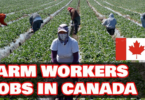Canada’s healthcare system faces significant staffing shortages, creating abundant opportunities for international healthcare professionals seeking employment with visa sponsorship. This comprehensive guide explores the Canadian healthcare job market, visa pathways, in-demand positions, application strategies, and long-term career opportunities for foreign healthcare workers.
Canada Health Care Jobs With Visa Sponsorship
Understanding Canada’s Healthcare System
Canada operates a publicly funded healthcare system known as Medicare. Each province and territory administers its own healthcare services while adhering to national standards established by federal legislation. The system employs over 1.8 million healthcare workers across various disciplines, making healthcare one of Canada’s largest employment sectors.
The Canadian healthcare landscape includes:
- Public hospitals and clinics governed by provincial health authorities
- Private healthcare facilities offering specialized services
- Long-term care and home care organizations
- Research institutions and academic medical centers
- Indigenous health services
- Telehealth and digital health enterprises
Healthcare Labor Shortages in Canada
Canada faces critical healthcare worker shortages across multiple disciplines. Factors contributing to this shortage include:
An aging healthcare workforce with many professionals approaching retirement Population growth and aging demographics increasing demand for services Geographic distribution challenges, particularly in rural and remote areas The COVID-19 pandemic, which accelerated burnout and early retirements
According to Immigration, Refugees and Citizenship Canada (IRCC), healthcare occupations consistently appear on the priority list for immigration pathways. Provincial healthcare authorities actively recruit internationally educated professionals to address these shortages.
In-Demand Healthcare Positions with Visa Sponsorship
Physicians and Specialists
Family physicians remain among the most sought-after healthcare professionals in Canada. According to the Canadian Institute for Health Information, many Canadians lack access to primary care providers. Specialists in the following areas are particularly in demand:
Psychiatry Emergency medicine Anesthesiology Oncology Geriatrics Rural medicine
The pathway to practicing medicine in Canada involves credential verification through the Medical Council of Canada, provincial licensing, and often residency training. While challenging, the physician pathway offers significant opportunities for visa sponsorship through federal and provincial nominee programs.
Nursing Professionals
Registered Nurses (RNs) represent Canada’s largest healthcare occupation with approximately 439,000 practitioners. Current projections indicate a shortage of nearly 60,000 nurses by 2026, creating substantial opportunities for internationally educated nurses.
Nursing positions with strong visa sponsorship potential include:
Critical care nurses Emergency department nurses Operating room nurses Mental health nurses Community health nurses Nurse practitioners
The National Nursing Assessment Service (NNAS) evaluates international nursing credentials, followed by provincial/territorial nursing regulatory body registration. Many Canadian employers assist with this process for promising candidates.
Allied Health Professionals
Allied health professionals face significant demand across various specialties:
Medical laboratory technologists Medical radiation technologists Respiratory therapists Occupational therapists Physiotherapists Speech-language pathologists Audiologists Pharmacists
Each allied health profession has its regulatory body requiring credential assessment and licensing. Programs like the Internationally Educated Health Professionals Initiative (IEHPI) support the integration of these professionals into the Canadian healthcare system.
Mental Health Practitioners
Mental health services face critical staffing shortages, particularly following the COVID-19 pandemic. Positions in high demand include:
Clinical psychologists Registered psychiatric nurses Mental health counselors Social workers specializing in mental health Addiction specialists
Mental health positions often qualify for various immigration pathways, including the Federal Skilled Worker Program and Provincial Nominee Programs.
Long-Term Care Professionals
Canada’s aging population has intensified demand for long-term care professionals, including:
Registered practical nurses (RPNs/LPNs) Personal support workers (PSWs) Healthcare aides Recreation therapists Dementia care specialists Gerontological social workers
Long-term care facilities frequently sponsor visas for qualified international candidates, particularly for regulated nursing positions.
Healthcare Administration and Management
The administrative side of healthcare also presents opportunities:
Health services managers Healthcare facility administrators Clinical informatics specialists Health information managers Healthcare project managers Patient care coordinators
These positions often require understanding of the Canadian healthcare system but may offer alternative pathways for professionals with transferable skills from other healthcare systems.
Visa Pathways for Healthcare Professionals
Express Entry System
The Express Entry system manages applications for three federal economic immigration programs:
Federal Skilled Worker Program (FSWP): Evaluates candidates based on factors including education, work experience, language proficiency, age, arranged employment, and adaptability. Many healthcare occupations qualify under National Occupational Classification (NOC) skill levels 0, A, or B.
Canadian Experience Class (CEC): Designed for individuals with at least one year of skilled work experience in Canada, making it an excellent pathway for those who initially come to Canada as temporary workers or students.
Federal Skilled Trades Program (FSTP): While less common for healthcare professionals, this can apply to certain technical roles in healthcare settings.
The Comprehensive Ranking System (CRS) scores Express Entry candidates, with higher-scoring candidates receiving Invitations to Apply (ITAs) for permanent residence. Healthcare professionals often score well due to their education levels and in-demand skills.
Provincial Nominee Programs (PNPs)
Each Canadian province and territory (except Québec) operates its own Provincial Nominee Program, many with healthcare-specific streams:
British Columbia PNP – Healthcare Professional category: Targets physicians, nurses, allied health professionals, and other healthcare workers.
Alberta Opportunity Stream: Includes numerous healthcare occupations on its eligible occupations list.
Saskatchewan Healthcare Worker category: Offers pathways for healthcare professionals in in-demand occupations.
Manitoba PNP – Healthcare Worker stream: Specifically designed for healthcare workers with job offers in Manitoba.
Ontario Human Capital Priorities Stream: Often prioritizes healthcare occupations based on labor market needs.
Nova Scotia Physician Stream: Specifically for family physicians and specialists with job offers in Nova Scotia.
New Brunswick Critical Worker stream: Includes healthcare roles among eligible occupations.
PNPs can offer significant advantages, including lower point thresholds and prioritized processing for healthcare workers.
Québec Immigration Programs
Québec operates its own immigration system, including:
Québec Regular Skilled Worker Program: Uses a points-based system that often favors healthcare professionals.
Québec Experience Program (PEQ): For those with Québec work experience or Québec educational credentials.
Québec faces substantial healthcare worker shortages and actively recruits internationally educated healthcare professionals, particularly those proficient in French.
Temporary Work Permits
Temporary work permits often serve as entry points for healthcare professionals:
Labour Market Impact Assessment (LMIA) Work Permits: Employers must demonstrate no qualified Canadians are available for the position.
LMIA-exempt Work Permits: Include options such as the International Mobility Program and certain free trade agreements.
Global Talent Stream: Provides expedited processing for certain high-skilled positions, including some healthcare technology roles.
Many healthcare professionals first obtain temporary work permits while completing Canadian licensing requirements, then transition to permanent residence.
Atlantic Immigration Program
The Atlantic Immigration Program supports employers in New Brunswick, Nova Scotia, Prince Edward Island, and Newfoundland and Labrador to hire foreign nationals for positions they cannot fill locally. Healthcare occupations feature prominently in this program.
Rural and Northern Immigration Pilot
This community-driven program helps smaller communities attract and retain skilled foreign workers to meet economic development and labor market needs, including healthcare positions in underserved areas.
Caregiver Programs
For healthcare professionals working as home care providers, the Home Child Care Provider Pilot and Home Support Worker Pilot offer pathways to permanent residence.
Finding Healthcare Employers Offering Visa Sponsorship
Healthcare Recruitment Agencies
Specialized healthcare recruitment agencies frequently connect international healthcare professionals with Canadian employers offering visa sponsorship:
Medijobs Canada: Specializes in physician, nursing, and allied health recruitment across Canada.
Healthcare Recruitment Partners: Works with hospitals and health authorities nationwide.
MedWorld Advisors: Focuses on physician recruitment and licensing assistance.
HFO Healthcare: Connects healthcare professionals with positions in various Canadian regions.
Drake Medox: Specializes in nursing and care worker placement.
These agencies typically provide support throughout the immigration process, from credential verification to work permit applications.
Provincial Health Authorities
Provincial health authorities frequently recruit internationally and sponsor visas:
Alberta Health Services: Canada’s largest integrated health system, actively recruiting internationally.
Saskatchewan Health Authority: Offers dedicated international recruitment programs.
Nova Scotia Health Authority: Provides sponsorship particularly for rural positions.
Northern Health (British Columbia): Focuses on recruiting to northern and remote communities.
Interior Health (British Columbia): Offers sponsorship programs for various healthcare disciplines.
Most provincial health authorities maintain dedicated international recruitment websites with current opportunities.
Professional Association Job Boards
Professional associations maintain job boards advertising positions with visa sponsorship:
Canadian Medical Association: Physician opportunities nationwide.
Canadian Nurses Association: Nursing positions across all specialties.
Canadian Association of Medical Radiation Technologists: Medical imaging and radiation therapy positions.
Canadian Society for Medical Laboratory Science: Laboratory position listings.
Canadian Physiotherapy Association: Physiotherapy opportunities.
Canadian Pharmacists Association: Pharmacy positions.
Online Healthcare Job Platforms
Several online platforms specialize in healthcare positions with visa sponsorship:
HealthForceOntario Job Portal: Ontario-focused healthcare positions.
HealthMatch BC: British Columbia healthcare opportunities.
HealthcareJobSite.ca: Nationwide healthcare job board.
Indeed Canada – Healthcare: Features filterable visa sponsorship options.
Workopolis – Healthcare: National job board with sponsorship information.
Canadian Healthcare Facilities with Active International Recruitment
Many healthcare institutions actively recruit internationally:
University Health Network (Toronto): Canada’s largest research hospital network.
McGill University Health Centre: Major teaching hospital system in Montréal.
Vancouver Coastal Health: Comprehensive health services in Vancouver region.
The Ottawa Hospital: Academic health sciences center with multiple campuses.
Winnipeg Regional Health Authority: Manitoba’s largest healthcare provider.
Eastern Health (Newfoundland): Atlantic Canada’s largest integrated health authority.
Many facilities conduct international recruitment campaigns, virtual job fairs, and information sessions for prospective candidates.
Preparing for Healthcare Employment in Canada
Credential Recognition and Licensing
Each healthcare profession requires specific credential recognition processes:
Physicians: Medical Council of Canada Qualifying Examination (MCCQE) and provincial licensing.
Nurses: National Nursing Assessment Service (NNAS) evaluation followed by provincial registration.
Pharmacists: Pharmacy Examining Board of Canada (PEBC) certification.
Medical Laboratory Technologists: Canadian Society for Medical Laboratory Science (CSMLS) certification.
Physiotherapists: Canadian Alliance of Physiotherapy Regulators assessment.
Occupational Therapists: Canadian Association of Occupational Therapists certification.
Begin the credential verification process early, as it often takes 12-24 months to complete. Many employers will support this process for promising candidates, particularly in high-demand specialties.
Language Proficiency Requirements
Healthcare positions require strong language skills:
English: Most provinces require CLB 7-9 for regulated healthcare professions, demonstrated through IELTS or CELPIP tests.
French: Required in Québec and bilingual regions, assessed through TEF or TCF exams.
Some regulatory bodies have profession-specific language assessments beyond standard tests. Investing in professional-level language training specific to healthcare terminology is highly recommended.
Bridging Programs for International Healthcare Professionals
Bridging programs help integrate international healthcare professionals into the Canadian system:
International Medical Graduate (IMG) programs: Offered by medical schools to help international physicians meet Canadian standards.
Internationally Educated Nurses Bridging Program: Available in several provinces.
Internationally Educated Physiotherapists Exam Preparation Program: Helps prepare for Canadian licensing exams.
Pharmacy Examining Board of Canada (PEBC) preparation programs: Assists international pharmacists.
Medical Laboratory Technology bridging programs: Offered through community colleges.
These programs often include clinical placements, exam preparation, communication skills, and Canadian healthcare system orientation.
Required Documentation
Prepare the following documentation for both employment and immigration:
Educational credentials: Original degrees, diplomas, and transcripts with certified translations.
Proof of professional experience: Detailed employment verification letters.
Licensing documentation: Current and previous professional licenses.
Language test results: Official IELTS, CELPIP, TEF, or TCF results.
Credential assessment reports: Educational Credential Assessment (ECA) from approved organizations.
Professional references: Letters from supervisors familiar with your clinical work.
Resume/CV: Formatted according to Canadian standards.
Proof of funds: Demonstrating financial capacity to settle in Canada.
Maintain both digital and physical copies of all documents, properly authenticated according to immigration requirements.
Application Strategies for Healthcare Positions
Creating a Canadian-Style Healthcare Resume
Canadian healthcare employers expect specific resume formats:
- Begin with a professional summary highlighting key qualifications and specialties
- Focus on clinical skills and relevant experience rather than general duties
- Include specific metrics and achievements (e.g., patient volumes, procedure counts)
- Detail familiarity with relevant medical technologies, electronic health records systems, and methodologies
- Emphasize adaptability, cultural competence, and teamwork skills
- Include a section on licensing status or pathway to Canadian licensure
- Format to be concise (typically 2-3 pages for healthcare professionals)
Tailor your resume to each position, highlighting experience most relevant to the specific role and facility.
Effective Interview Techniques
Healthcare interviews in Canada often assess both clinical competence and cultural fit:
- Prepare for behavioral interview questions using the STAR method (Situation, Task, Action, Result)
- Demonstrate knowledge of Canada’s healthcare principles and the provincial system where applying
- Highlight experience with diverse patient populations and cultural sensitivity
- Prepare examples showing teamwork, conflict resolution, and adaptability
- Be ready to discuss differences between your home country’s healthcare system and Canadian practices
- Show familiarity with patient-centered care models and interdisciplinary approaches
- Research the specific facility’s values, strategic priorities, and patient demographics
Virtual interviews are common for international applicants, so practice with the technology and consider lighting, background, and connectivity in advance.
Salary Expectations and Negotiation
Healthcare salaries vary significantly by province, specialty, and experience:
Physicians: Family physicians earn $250,000-$350,000 annually; specialists range from $300,000-$700,000 depending on specialty.
Registered Nurses: $75,000-$100,000 annually depending on province and specialization.
Pharmacists: $90,000-$120,000 annually.
Physiotherapists: $75,000-$95,000 annually.
Medical Laboratory Technologists: $65,000-$85,000 annually.
Respiratory Therapists: $70,000-$90,000 annually.
Research current salary ranges in your specific province and specialty. Consider total compensation including benefits, continuing education allowances, relocation assistance, and pension contributions when evaluating offers.
Relocation Support and Benefits
Many healthcare employers offer relocation packages:
- Airfare for you and immediate family members
- Temporary accommodation upon arrival (typically 1-3 months)
- Moving allowance for shipping personal belongings
- Immigration legal support and filing fee coverage
- Credential verification and licensing fee reimbursement
- Orientation to the Canadian healthcare system
- Mentorship programs pairing you with established practitioners
- Language training or cultural integration support
Larger health authorities and academic medical centers typically offer more comprehensive relocation packages. These benefits are often negotiable, particularly for hard-to-fill positions and rural placements.
Success Stories: International Healthcare Professionals in Canada
Dr. Mirai Patel, Family Physician from India
Dr. Patel graduated from a medical school in Mumbai and practiced for five years before immigrating to Canada. After completing the Medical Council of Canada evaluation exams, she entered a family medicine residency program in Manitoba. Upon completion, she received permanent residence through the Manitoba Provincial Nominee Program, establishing a practice in Winnipeg where she now mentors other internationally educated physicians.
Carlos Rodriguez, Registered Nurse from the Philippines
Carlos worked for eight years as an ICU nurse in Manila before applying to positions in British Columbia. A hospital in northern BC sponsored his work permit while he completed the NNAS assessment and provincial registration. The rural location qualified him for expedited processing through the Rural and Northern Immigration Pilot. After gaining permanent residence, he pursued a Nurse Practitioner program at the University of British Columbia.
Aisha Nkosi, Medical Laboratory Technologist from Nigeria
Aisha came to Canada initially as an international student, completing a bridging program for internationally educated medical laboratory technologists in Ontario. This program included supervised clinical placements and exam preparation. Upon certification, she secured a position with a hospital network in the Greater Toronto Area, eventually obtaining permanent residence through the Canadian Experience Class.
Liam O’Connor, Physiotherapist from Ireland
Liam applied directly to positions in Atlantic Canada, securing a job offer from a rehabilitation center in Nova Scotia. His Irish credentials qualified for expedited assessment through existing agreements between regulatory bodies. The Atlantic Immigration Program provided his pathway to permanent residence. After five years, he opened his own physiotherapy practice specializing in sports medicine.
Challenges and How to Overcome Them
Licensing and Credential Recognition
The credential recognition process can be lengthy and complex. Strategies to address this include:
- Begin documentation and verification processes before arriving in Canada
- Consider bridging programs specifically designed for your profession
- Explore alternative interim roles in your field while completing licensure
- Connect with professional associations offering exam preparation and support
- Research reciprocal recognition agreements between Canada and your home country
- Consider starting in provinces with accelerated pathways for international professionals
Many healthcare facilities offer clinical observership or assistant positions that allow you to gain Canadian experience while completing licensing requirements.
Regional Considerations and Rural Opportunities
While most international healthcare professionals initially target major urban centers, rural and remote communities offer significant advantages:
- More accessible visa pathways through rural-focused immigration programs
- Higher salaries and generous incentive packages
- Accelerated career advancement opportunities
- Lower cost of living allowing faster financial establishment
- Broader scope of practice and more diverse clinical experience
- Stronger community integration and support
- More direct immigration pathways with lower competition
Provincial programs like the British Columbia Practice Ready Assessment program for international medical graduates specifically target rural placements with dedicated immigration support.
Cultural Integration in Canadian Healthcare Settings
Adapting to Canadian healthcare culture involves understanding:
- Patient-centered care models and shared decision-making
- Interdisciplinary team approaches and collaborative practice
- Documentation standards and privacy regulations
- Communication norms with patients and colleagues
- Appropriate use of medical terminology and abbreviations
- Cultural competence when working with diverse populations
- Indigenous health considerations and cultural safety
Many healthcare organizations offer cultural orientation programs and mentorship opportunities specifically designed for international professionals.
Long-Term Career Development and Immigration Pathways
Continuing Education and Specialization
Once established in the Canadian healthcare system, further career development opportunities include:
- Specialized certifications in high-demand areas
- Advanced practice roles (e.g., Nurse Practitioner, Physician Assistant)
- Leadership and administrative positions
- Clinical educator and preceptor roles
- Research opportunities and academic appointments
- Entrepreneurship and private practice development
Many employers offer tuition support, conference funding, and protected time for professional development.
Pathway to Permanent Residence and Citizenship
Most healthcare professionals begin with temporary work permits but can transition to permanent residence through:
- Express Entry after gaining Canadian work experience
- Provincial Nominee Programs specific to their healthcare profession
- Canadian Experience Class after one year of skilled work
- Rural immigration pathways for those serving underserved communities
After obtaining permanent residence, healthcare professionals can apply for Canadian citizenship after meeting physical presence requirements (typically three years within a five-year period).
Building Professional Networks
Professional connections accelerate both career advancement and cultural integration:
- Join professional associations in your healthcare discipline
- Participate in continuing education events and conferences
- Connect with alumni networks from bridging programs
- Engage with cultural associations for healthcare professionals
- Volunteer with healthcare initiatives in your community
- Participate in mentorship programs, both as mentee and eventually as mentor
- Join online communities for international healthcare professionals in Canada
These networks provide job leads, licensing support, cultural integration assistance, and valuable professional development opportunities.
Preparing for Your Move to Canada
Understanding the Canadian Healthcare Workplace
Canadian healthcare environments emphasize:
- Interdisciplinary collaboration and team-based care
- Evidence-based practice and continuous quality improvement
- Patient and family-centered approaches
- Cultural safety and inclusivity
- Work-life balance and professional wellbeing
- Technological integration and digital health solutions
- Accountability and transparency in care delivery
Familiarize yourself with these principles before arrival to facilitate smoother integration.
Cost of Living and Financial Planning
Financial considerations vary significantly by region:
- Housing costs are highest in Toronto, Vancouver, and their surrounding areas
- Many healthcare positions in rural areas include housing allowances or subsidized accommodation
- Provincial income tax rates vary from 10% to 25% depending on income level and province
- Healthcare coverage begins immediately in some provinces, while others have waiting periods
- Professional liability insurance is necessary for most regulated healthcare positions
- Credential assessment, licensing exams, and registration fees can total $5,000-$15,000 depending on profession
Financial preparation should include funds to cover 3-6 months of living expenses plus licensing costs.
Cultural Adaptation and Community Integration
Successfully establishing yourself in Canada extends beyond professional integration:
- Connect with cultural communities from your home country
- Participate in community events and volunteer opportunities
- Engage with professional associations’ social and networking events
- Utilize settlement services offered by immigrant-serving organizations
- Consider joining recreational activities and sports leagues
- Explore Canada’s natural and cultural landmarks in your region
- Learn about Indigenous peoples and their health perspectives
Many healthcare employers offer cultural orientation programs and social support for newly arrived international professionals and their families.
Conclusion
Canada’s healthcare system offers abundant opportunities for internationally educated healthcare professionals seeking employment with visa sponsorship. The combination of critical workforce shortages, developed immigration pathways, and supportive integration programs makes Canada an attractive destination for healthcare career development.
While the process requires careful planning, credential verification, and often additional training or assessment, the long-term benefits include professional growth, competitive compensation, excellent quality of life, and pathways to permanent residence and citizenship.
By understanding the Canadian healthcare landscape, visa options, licensing requirements, and employment strategies outlined in this guide, international healthcare professionals can successfully navigate their transition to a rewarding career in Canada’s healthcare system.
For those willing to consider positions in rural and underserved communities, even more opportunities and immigration advantages await. Canada’s ongoing commitment to addressing healthcare workforce shortages through international recruitment ensures that qualified healthcare professionals will continue to find welcoming pathways to contribute their skills to Canada’s renowned healthcare system.







